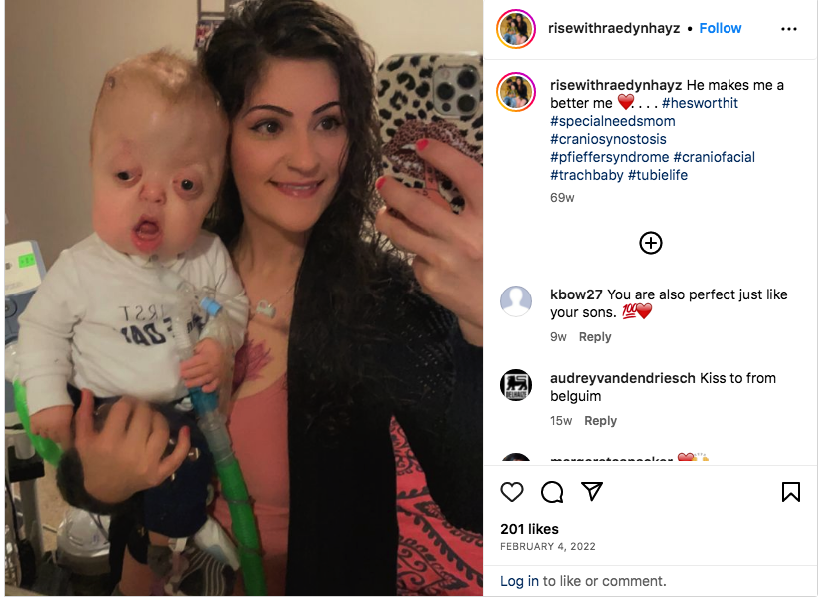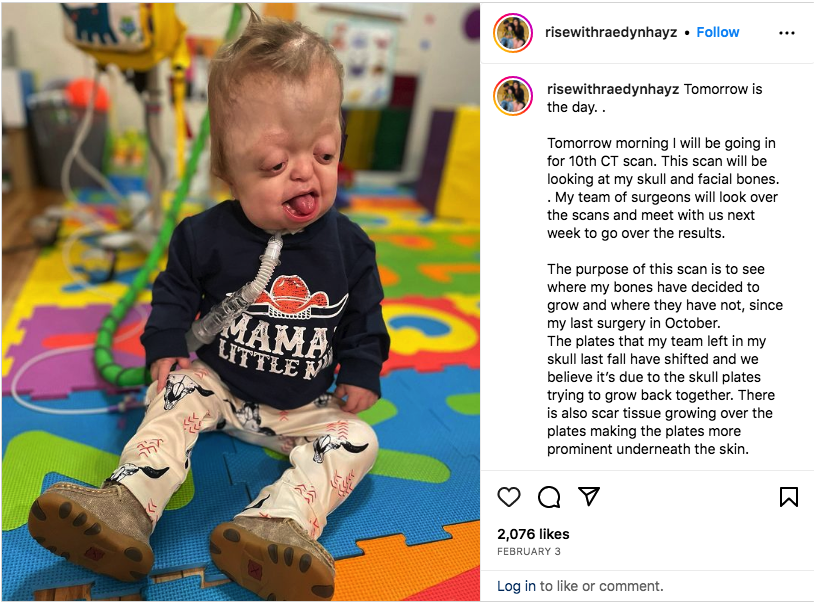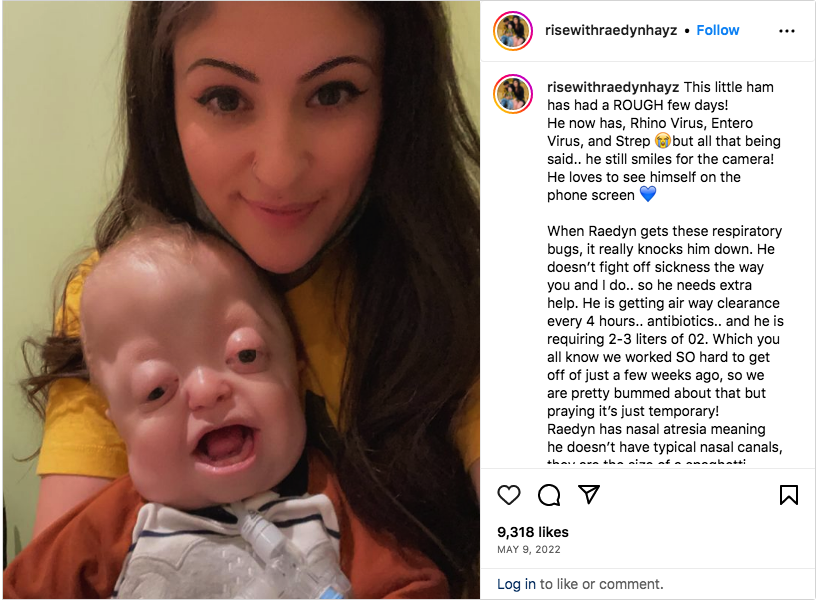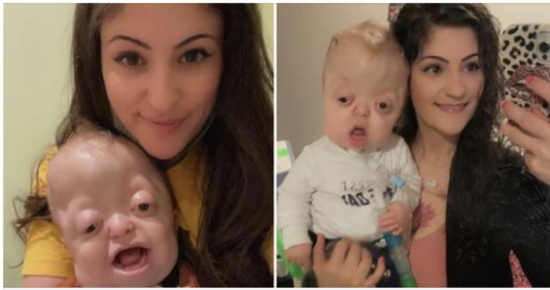These days, most people rely on social media as their main method of keeping in touch with others.
Sending pictures of your kids to loved ones is a common practice.
She, like many other young mothers, uses social media to share photos of her child, but she notices a striking difference in the responses to her posts and the way her child is treated. However, she does have a few comments…

Natasha, a new mother, is getting used to her new role. She’s just like every other new mom out there: she can’t resist sharing adorable photos of her baby son Raedyn on social media. However, unlike most mothers, she had to deal with severe cyberbullying because of her son’s appearance.
She and Raedyn’s online antics are documented in videos shared on the popular app TikTok. She also gets hundreds, if not thousands, of comments a day asking her to stop sharing her son’s photos and videos.
But Natasha wants her detractors to know that she will not give up. She insists that despite his unconventional appearance, he is in fact flawless.

How many times has someone asked her, “What is wrong with your child?” in an online comment or message? “Why does your kid have to be so ugly?”
Young Raedyn was born with Pfeiffer syndrome, which causes skeletal, facial, and craniofacial malformations. Natasha, on the other hand, is convinced that her son has no flaws, so she posts videos of him online whenever she can.
People are cruel, therefore she recounts some of the most common comments she hears, such as “What quality of life will he have?” I mean, why would you subject him to that? You’re letting him have such a miserable life as it is.

Natasha receives harsh comments from both online trolls and real-life people. She claims that strangers will rudely approach her in public and ask her questions about her child’s condition, such as “people just come up to me and impolitely ask: ‘what’s wrong with your child?'” Why does your kid have that look on his face? No human being should be addressed in such a manner.
She has a hard time going out in public at all because of the constant scrutiny she receives. She said, “Explaining my son’s health problems over and over again is exhausting.”
Her son’s appearance makes it hard for her to comprehend the widespread fascination with him. She says, “He’s just like any other kid. Does he appear to be otherwise? Indeed, but that doesn’t diminish him in any way.
As an extension of that, “He deserves life, he deserves acceptance – I will fight until my dying day for that.”

She dislikes the attention people pay her, especially when they interrupt her day to be “curious” and ask her questions.
What people need to know is that I am a mom, and my son is a baby; our lives aren’t centered on his diagnosis.
“My son may look a little bit different, but that doesn’t mean he is just a lesson to give the world,” the weary new mother continued. Repeatedly explaining my son’s medical history and the diagnosis is mentally and emotionally draining.
Our family is just like any other. I hope that one day the world will stop rejecting disabled people because of their looks or their perceived limitations.

It truly is heartbreaking to observe that folks are still quick to criticise those who are in any manner dissimilar to them in this day and age. We can only hope that people will start being more inclusive and kind.
We’re sending Natasha and young Raedyn our love. Send them your best wishes along with us.

